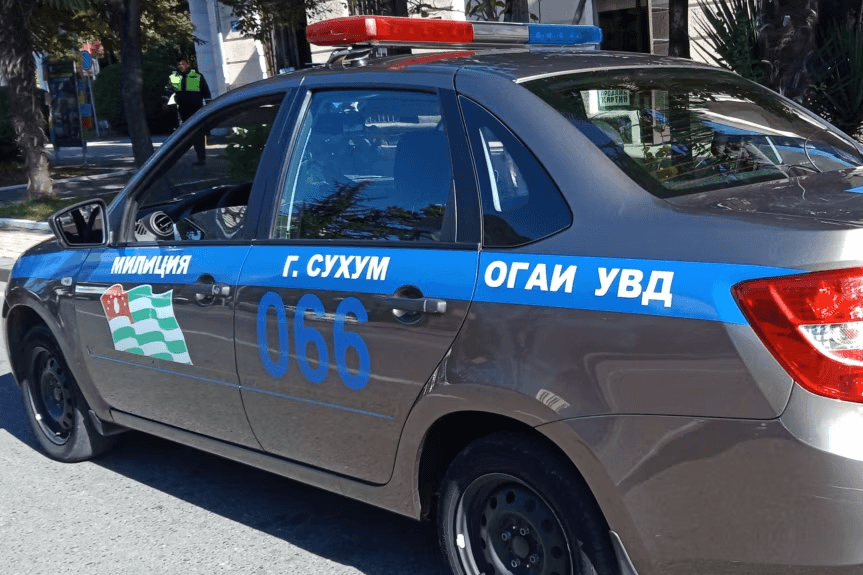
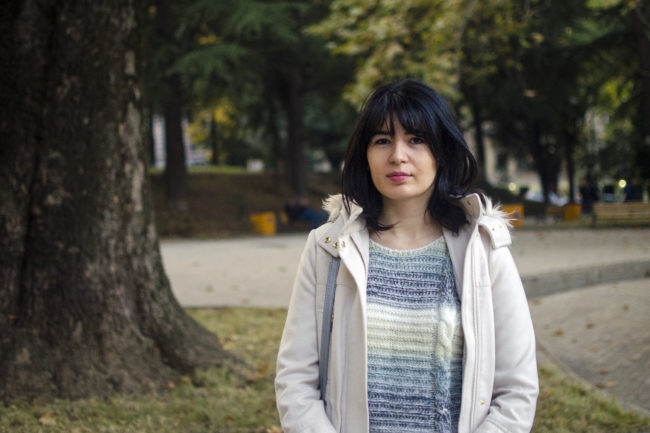
Khatia Kardava, 28, IDP Women Association — Consent
 ‘I was three years old when the war began. I hardly remember anything, but I don’t really like when people ask me about it, because it’s painful. As time passes the memories become blurry — I don’t really know what are actual memories and what are expressions from photos and videos.’
‘I was three years old when the war began. I hardly remember anything, but I don’t really like when people ask me about it, because it’s painful. As time passes the memories become blurry — I don’t really know what are actual memories and what are expressions from photos and videos.’
[Read in Georgian — სტატია ქართულ ენაზე]
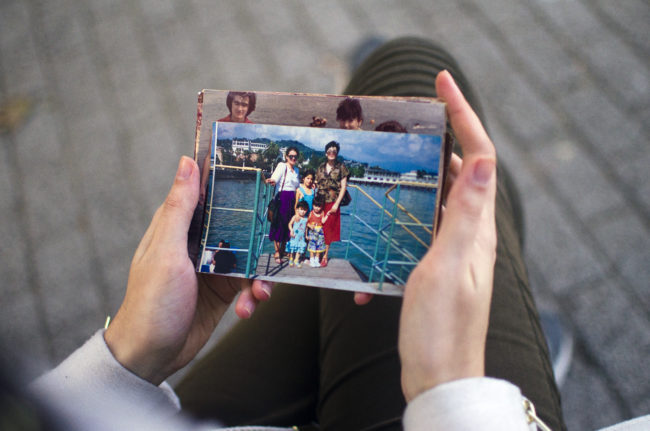
‘I was living in Sukhumi with my mum and dad. I don’t discuss the war with mother. When I visit my grandmother we sometimes discuss it. If there was no war, everything would have been different. Father would be alive.’
‘My father used to work in the military police. When the war began he left to fight on the frontlines. He was wounded, but said he wouldn’t leave his friends there and went back.’
‘He was 33 when he died. I know that he was an exceptionally kind person. Everyone would characterise him very positively and not only because they wouldn’t speak ill of the dead. I always imagine him as a person with a sparkle.’
After the war
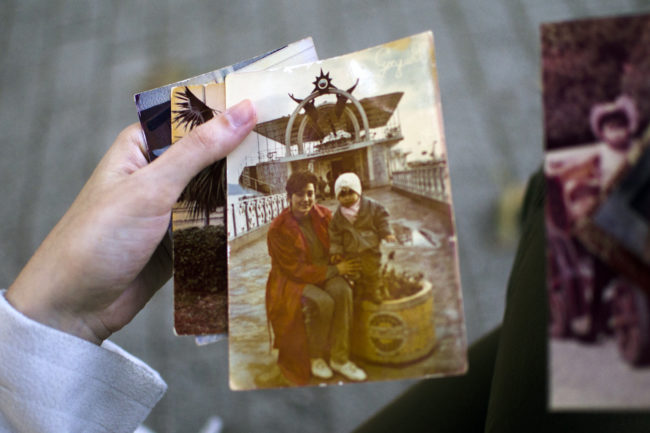
‘We came [to Tbilisi] by plane with my mother and grandmother. We lived in Rustavi for a year in a dormitory. My other grandmother went to Samegrelo. She would supply us with agricultural products in hard times.’
‘Many people went to Moscow after the war, including some of our relatives. My aunts took us there too.’
‘It must be a psychological trauma where the brain discards the bad memories, because when my friends, IDPs from Abkhazia, write how vividly they remember these long lines for bread I am surprised, because my memory discarded all of this.’
‘I was seven when we came to Tbilisi. Flats must have been cheap back then in Tbilisi. We purchased a flat on Mtatsminda when we arrived from Moscow.’
‘I have never been a demanding child. They would always ask me whether I needed anything, but I never asked for anything, when there was poverty.’
‘I was lucky compared to others because there was this program — the Friendship Association of Georgia and Italy — which was sending children of men who died in war to Italy. It was completely different world there. I had a colourful childhood and I didn’t really feel the poverty of being a IDP.’
‘It was a great contrast. I never lacked for anything there. I would go to Italy every summer for six years.’
‘If I could, I would definitely go there’
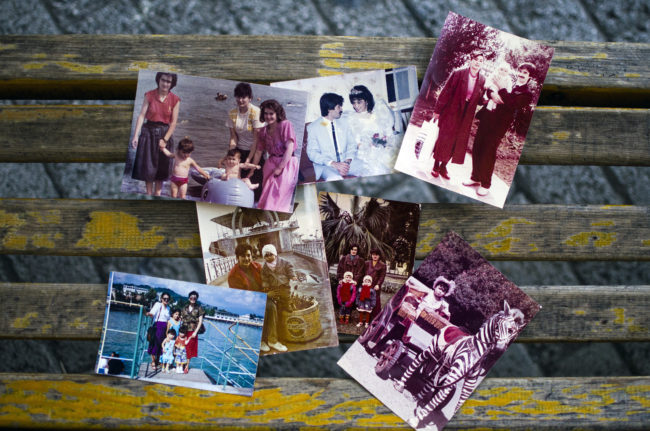
‘My aunt manages to go back there occasionally. Her husband is ethnically Abkhaz. They go there to visit the cemetery. We don’t have the opportunity to go there and see our house. There is no house anymore anyway. If I could, I would definitely go there.’
‘If there would not have been the war life would be different. My family would be complete — I would have a father. I lack something really big in my life.’
‘But considering everything, I still cannot perceive Abkhazians as “them” and “us”. I don’t know why. There is always too much violence in war. Unfortunately people become violent at their own will on both sides of the frontline, but this I think was not systematic. I don’t hold a grudge. We have to find ways for peace, people need to be more active.’
‘I am not angry at Abkhaz people. But I don’t feel nostalgic or melancholic about Abkhazia either. Probably because I don’t remember much. My grandmother has bad memories of those times, for instance, how they got stuck there and had to eat corn left in the forests.’
‘Of course, Russia played a great role in this, but we all made mistakes. We also have to admit our mistakes. Georgia was a very young state back then, which didn’t have knowledge and experience. We fell for many hooks back then. Abkhaz are also guilty, as we reached this point — probably it was a result of pseudo-nationalism or the Russian propaganda.’
‘It is regretful that it all turned out like this. Abkhazia was a beautiful place.’
[Read a voice from Abkhazia: ‘The war robbed me of everything’]





